Dogs are called our best friends for many reasons — they offer companionship, emotional support, and a sense of purpose. But beyond their loyal presence, emerging research suggests that dogs may also play an unexpectedly important role in supporting human gut health. By increasing microbial diversity in our environments, modulating immune responses, and encouraging healthier lifestyle habits, dogs can act as living microbial ambassadors, positively influencing the gut microbiome. Despite everything that I am about to share with you, I need to preface this conversation with...only get a dog if you can love and care for it...not because of what they can do for you....now lets deep dive into this insane science
When we look at health, its going beyond diet alone and examining the broader exposome — the totality of environmental, dietary, and microbial exposures that shape health over time. Pets, particularly dogs, are powerful modifiers of this microbial environment. By bridging the outdoor and indoor worlds, they introduce a spectrum of beneficial microbes that gently “train” our immune systems and enrich the ecological complexity of the gut.
The Microbial Bridge: How Dogs Influence Human Microbiomes
Dog ownership increases exposure to microbial diversity. Dogs move between outdoor and indoor environments, bringing with them soil microbes, pollen, and environmental bacteria. These organisms can seed, or at least stimulate, our own microbial ecosystems — exposing the gut, skin, and respiratory tract to a wider array of microorganisms.
In ecological terms, a richer pool of microbes in our surroundings provides more opportunities for beneficial species to thrive or, at the very least, stimulate healthy immune adaptation.
Large metagenomic analyses comparing companion animals and humans have identified both shared and host-specific microbial species clusters. In one recent study, companion animals carried 184 species-level genome bins not found in humans, and 198 species were shared across humans, dogs, and cats. This points to a significant microbial “interchange” within shared living environments.
From a health perspective, greater microbial input diversity — within sensible safety boundaries — encourages a more resilient gut ecology, making it less prone to collapse into dysbiosis during stress or illness.
Immune Training and Tolerance
Dogs may also indirectly support human gut health through immune system modulation. Early-life exposure to pets has been associated with lower rates of allergies, asthma, and some autoimmune conditions. This aligns with the “hygiene hypothesis” and its evolved form, the “microbial deprivation” theory, which suggest that excessively sterile environments deprive the immune system of opportunities to develop regulatory balance and tolerance.
Exposure to a broader array of harmless microbes through dog ownership may help calibrate mucosal immune responses in the gut, lungs, and skin. This reduces overreactions such as inflammation and allergic responses, which can disrupt the gut barrier and alter microbial balance.
While most research has focused on early childhood, the same principles apply throughout life: a well-trained, well-regulated immune system is less likely to overreact to commensal microbes and is more capable of maintaining homeostasis.
Lifestyle and Behavioural Benefits
Beyond microbial exposure, dogs shape human behaviours in ways that support a healthy gut:
-
Increased outdoor activity – Regular walks expose both owners and dogs to a variety of natural environments rich in microbial diversity.
-
Stress reduction and emotional support – Interacting with dogs can lower stress levels, supporting gut balance through the gut–brain axis.
-
Social connection – Dog ownership encourages social interactions, reducing loneliness and chronic stress, both of which can negatively affect the gut.
-
Routine and stability – Dogs often help structure daily routines, improving circadian rhythms and eating patterns, both of which influence microbial rhythms in the gut.
These indirect pathways create a lifestyle that is naturally conducive to a more stable and diverse gut ecosystem.
Practical Functional Health Strategies
To harness the gut health benefits of dog ownership, it’s important to balance microbial exposure with hygiene and care:
1. Hygiene Balance
Avoid over-sanitising your home to the point where only hospital-grade microbes remain. Allow safe environmental exposures, while maintaining sensible hygiene practices such as hand washing after handling pet waste.
2. Encourage Outdoor Exploration
Walk your dog through varied natural environments such as grass, soil, and parks. Allow them to sniff and explore safely, increasing microbial diversity in your shared environment.
3. Support Dietary Diversity (For Both Humans and Dogs)
-
For your dog: Emphasise fibre-rich, species-appropriate diets and avoid overly processed foods.
-
For yourself: Include microbially rich foods such as fermented products, diverse plant fibres, and minimally processed wholefoods to enhance microbial seeding.
4. Minimise Stress — Theirs and Yours
A calm, well-adjusted dog sheds fewer stress-induced dysbiotic signals. Likewise, reducing your own stress promotes gut health via hormonal and neural pathways.
5. Use Microbial Interventions Wisely
Probiotics, prebiotics, and postbiotics can be supportive tools, but they should complement — not replace — the benefits of natural environmental exposure and a balanced lifestyle.
Superfoods for Both Humans and Dogs
While we’re talking about gut health, many functional superfoods are just as beneficial for your dog as they are for you. Here are a few that they love:
Ashwagandha
This adaptogenic herb is excellent for relieving stress and anxiety in both dogs and humans.
Dosage for dogs:
-
Under 11 kg: 125–250 mg/day
-
12–22 kg: 250–500 mg/day
-
Over 22 kg: 500–1000 mg/day
Open the capsules and mix with their food for easy administration.
Turkey Tail Mushroom
Rich in polysaccharopeptides and beta-glucans, Turkey Tail supports gut health and immune resilience.
Maintenance dosage for dogs:
-
4.5 kg dog: 225 mg/day
-
Up to 13.6 kg: 680 mg/day
-
27.2 kg: 1,360 mg/day
Hemp Oil
Hemp oil provides essential omega-3 and omega-6 fats, supporting skin, coat, and gut health.
Dosage for dogs:
-
<5 kg: 1 ml/day
-
5–10 kg: 1.5 ml/day
-
10–20 kg: 2 ml/day
-
20 kg: 3 ml/day
Spirulina
This nutrient-dense algae contains proteins, omega fats, vitamins, minerals, and antioxidants including chlorophyll and phycocyanin. It supports detoxification, vitality, and gut health.
Dosage:
-
Small dogs: 500 mg/day (1 capsule)
-
Large dogs: 1 g/day (2 capsules)
Organic Ashwagandha CapsulesA powerful supplement for your health and wellness. Order Now |

|
Frequently Asked Questions
What does Turkey Tail mushroom do for you?
Turkey Tail mushroom supports gut, immune function and is also known for its antioxidant and anti-inflammatory properties. It is a great choice for overall wellness and gut health.
Is Lion's Mane or Turkey Tail better?
They both serve different purposes. Lion's Mane is best known for brain health and cognitive support, while Turkey Tail is prized for immune and gut support. Many people take both for a well-rounded approach to wellbeing.
Who should not take Turkey Tail?
Anyone with mushroom allergies, autoimmune conditions, or who is pregnant or breastfeeding should consult a healthcare provider before taking Turkey Tail. If you're on immunosuppressants or undergoing treatment, always speak to your doctor first.
Is Turkey Tail hard on the liver?
Conversely, Turkey Tail mushrooms seem to protect the liver and improve gut health. There's some evidence that Turkey Tail mushrooms reduce liver inflammation and support its wellness.





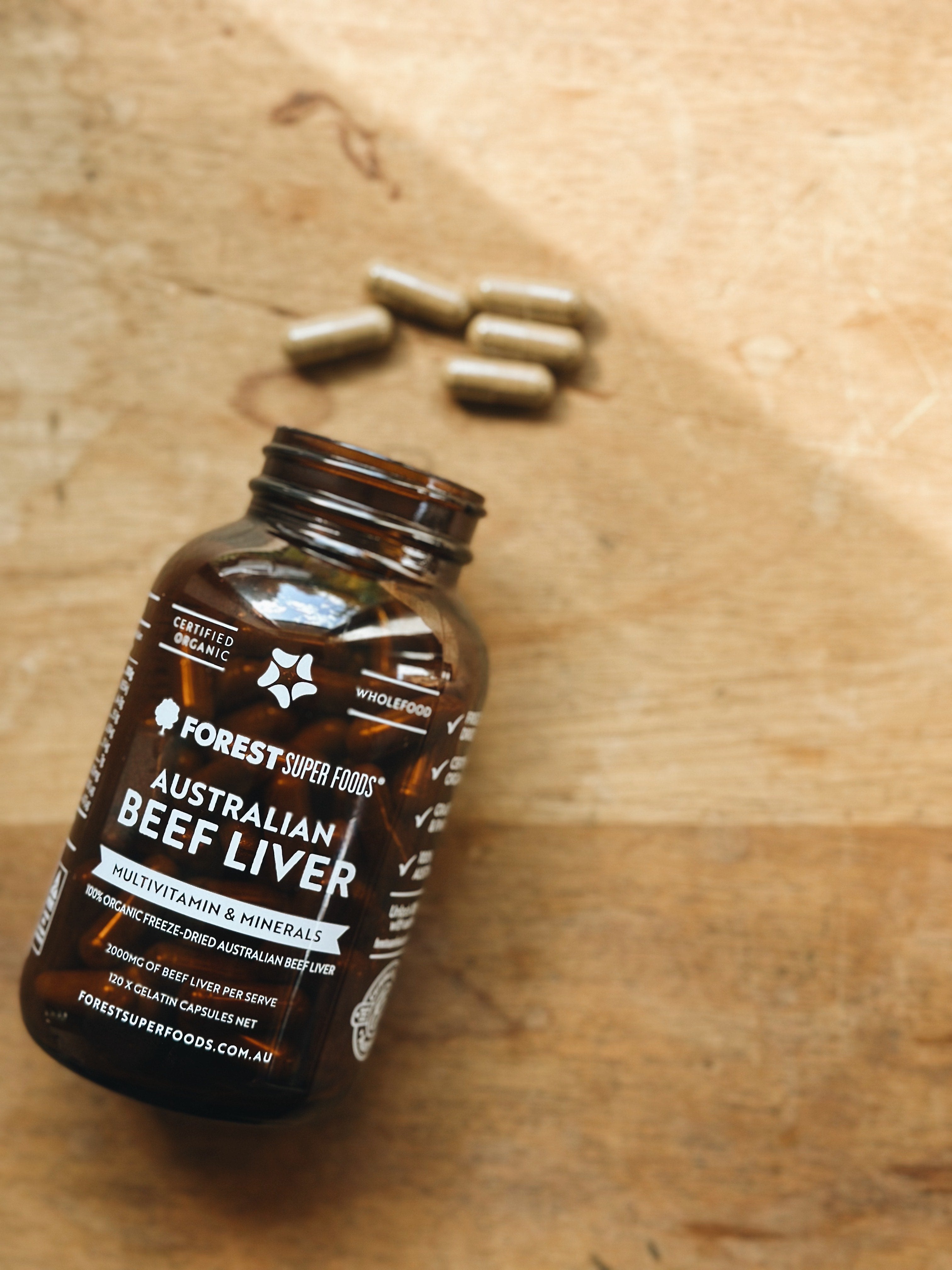
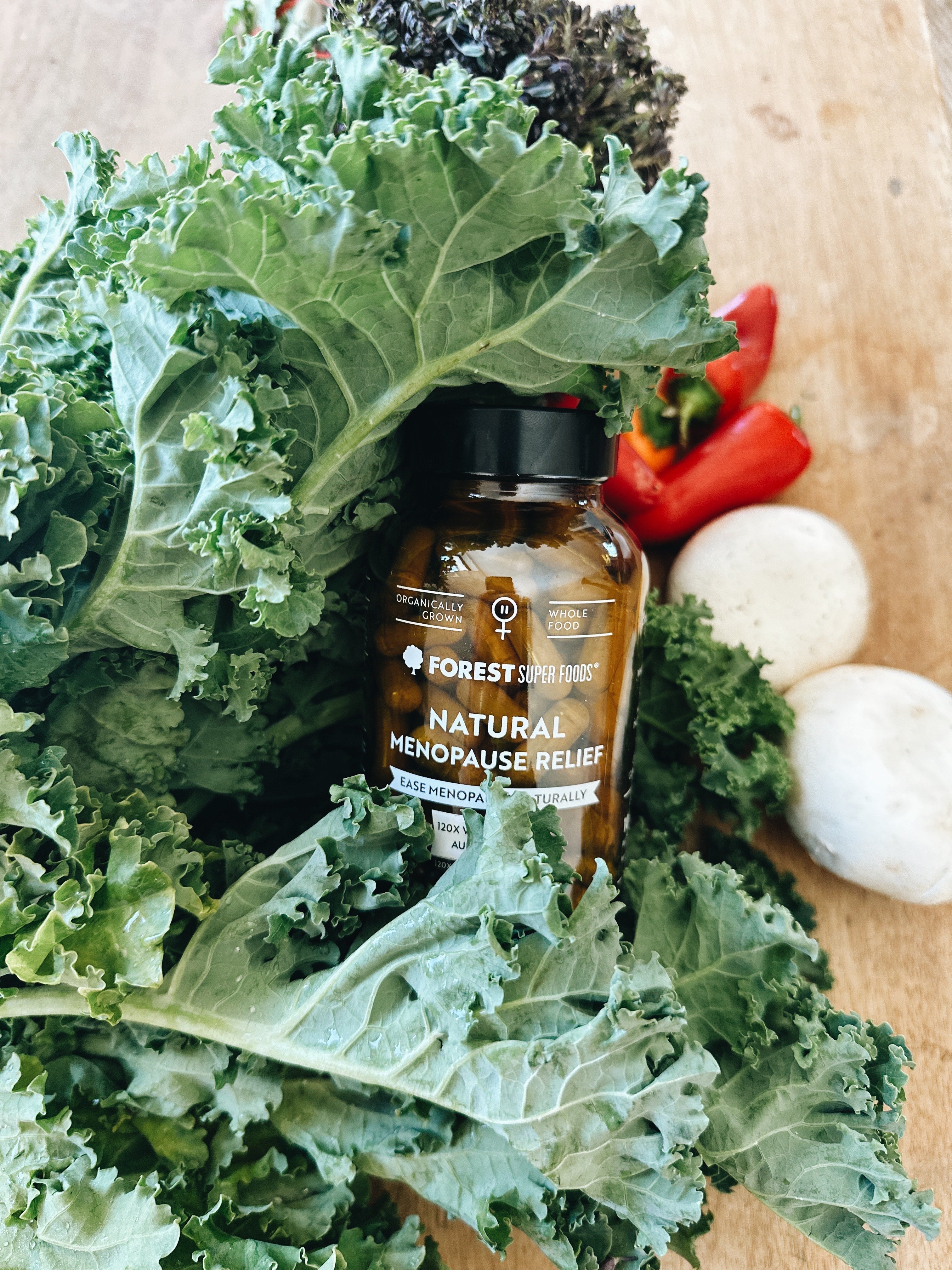
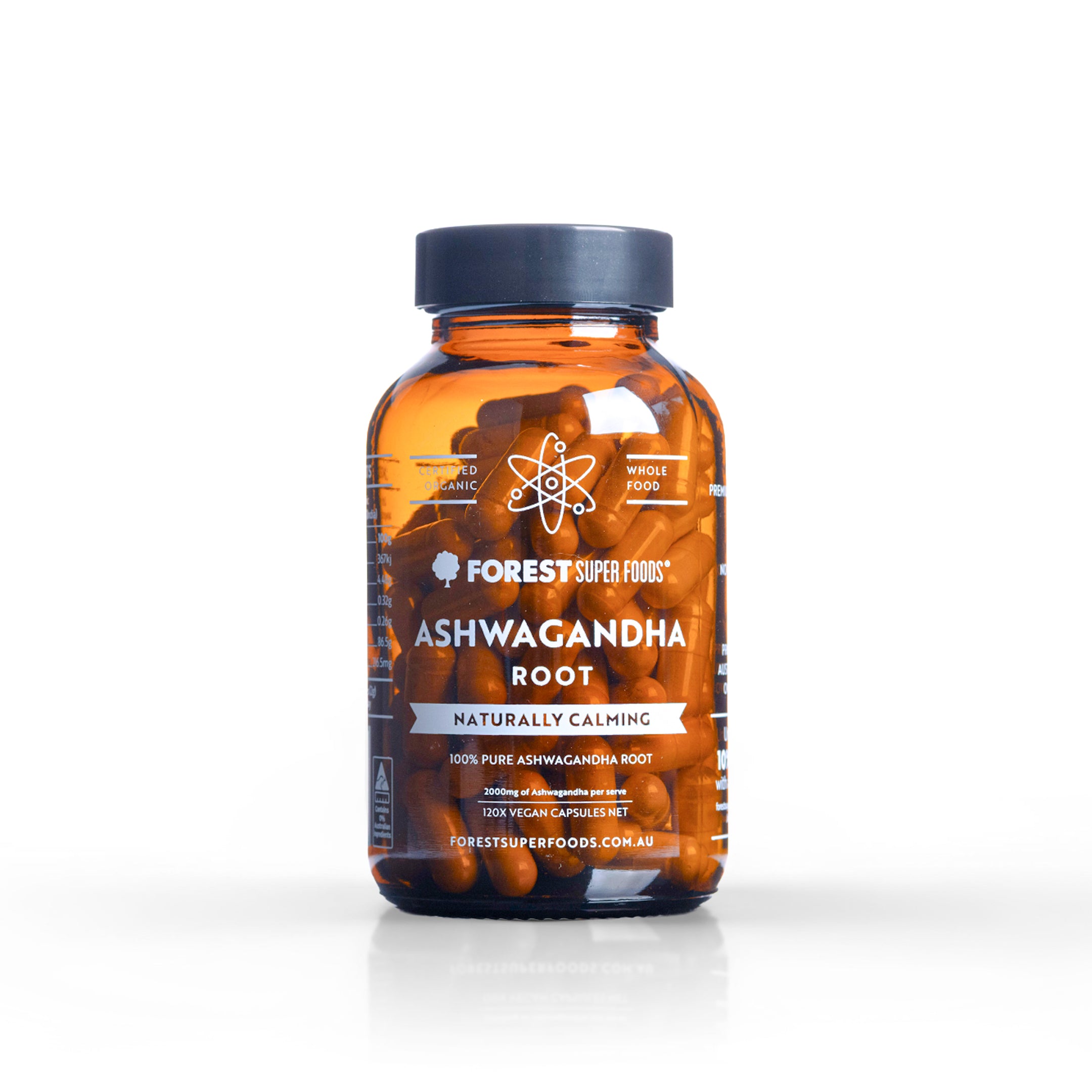
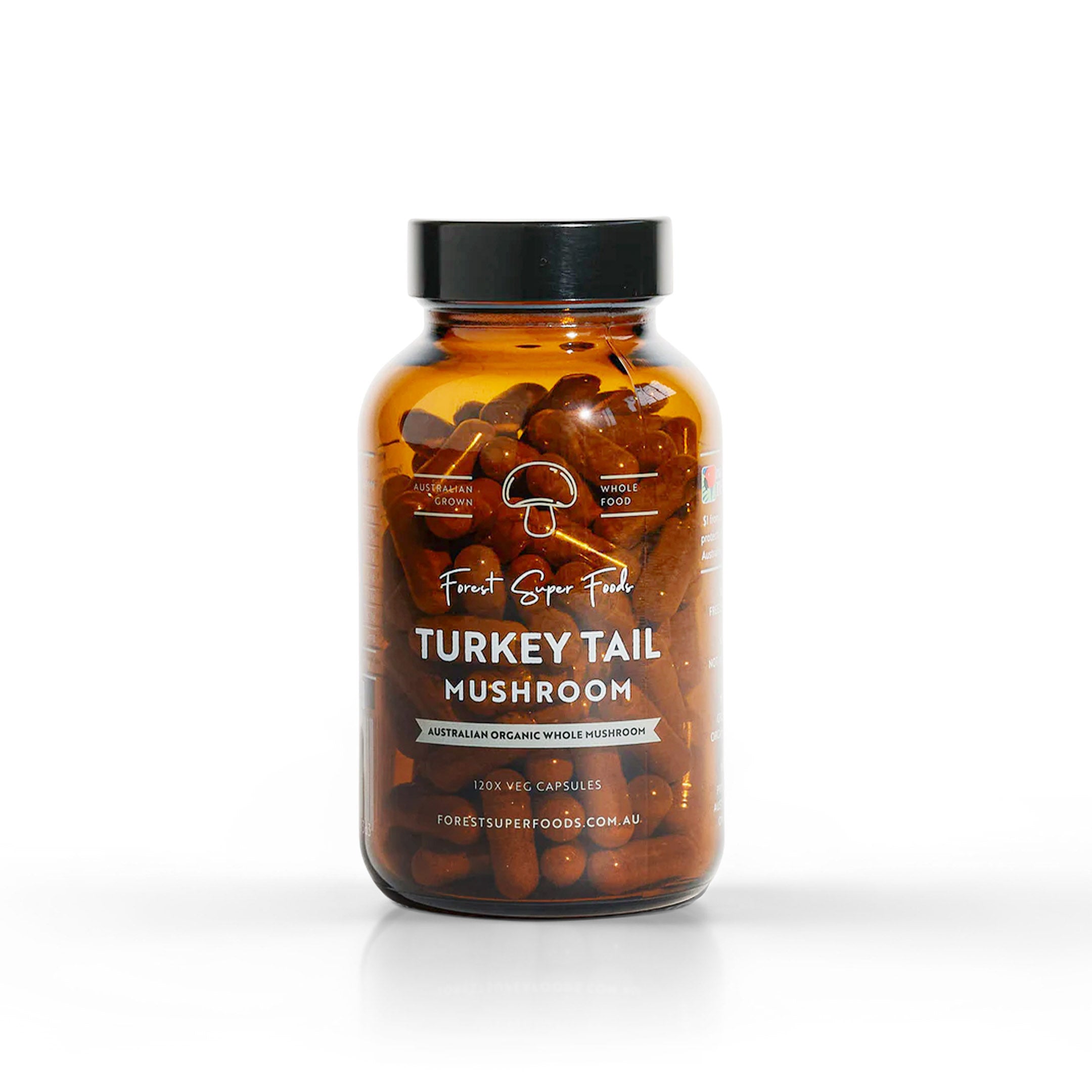
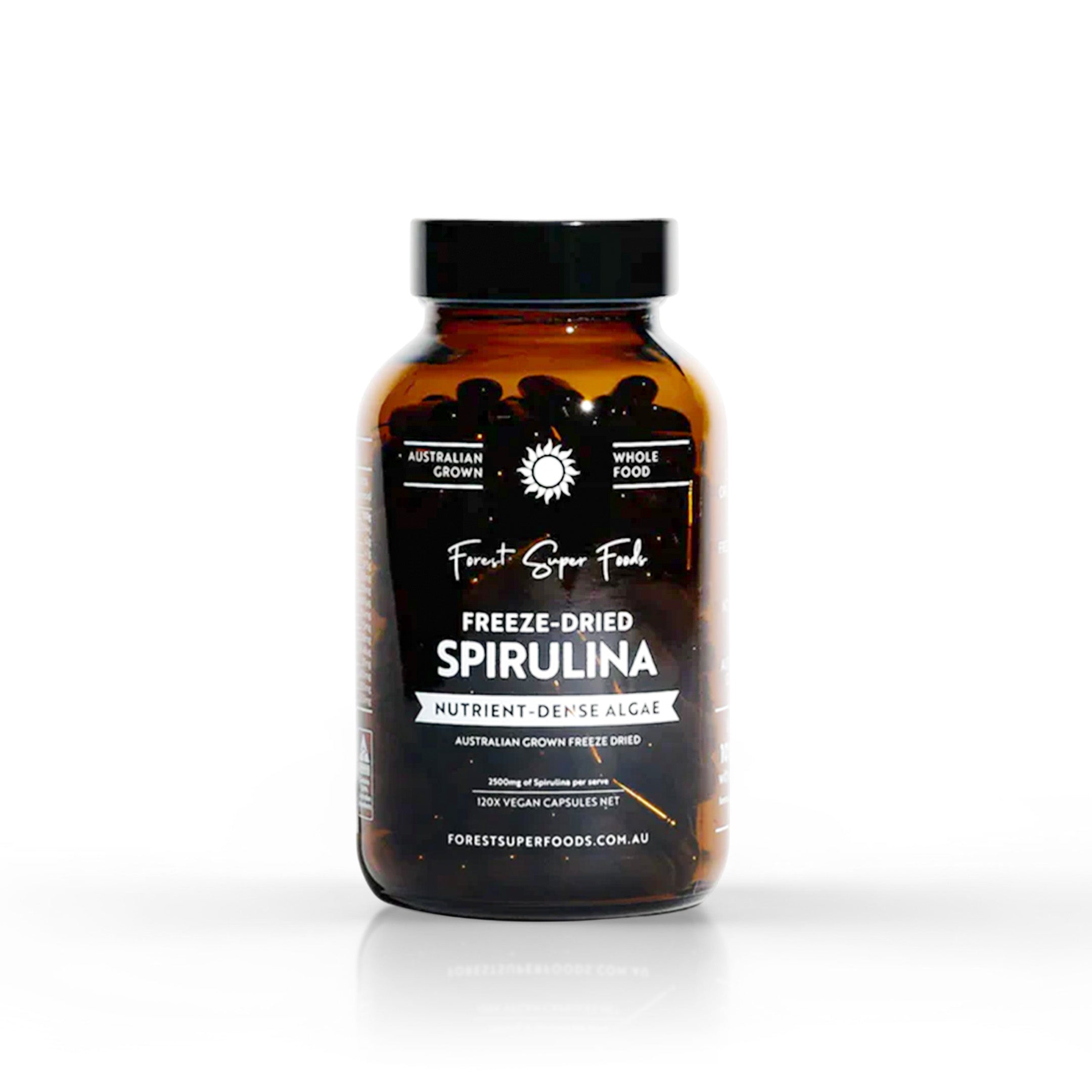
Leave a comment
All comments are moderated before being published.
This site is protected by hCaptcha and the hCaptcha Privacy Policy and Terms of Service apply.